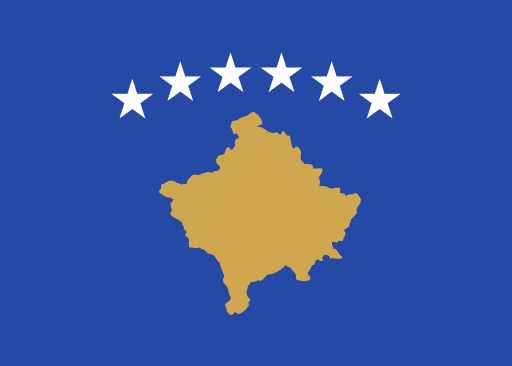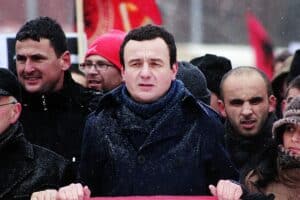Local elections were held on November 29th in two municipalities in Kosovo. Although the elections were local, they were viewed as having national political importance, showing that support for the opposition is growing and that Serbia has a continued influence in the Serb-majority north. Shpejtim Bulliqi, member of Kosovo’s largest opposition party, Vetevendosje, will become mayor in Podujeve. He won 51.64% of the votes. In North Mitrovica, Milan Radojevic from Lista Srpska will become mayor, winning 89% of the vote.
The snap elections were organized in the two municipalities as their previous mayors both left to take up central government positions. Agim Veliu, from the Democratic League of Kosovo (LDK) left Podujeve in February to become interior minister. Goran Rakic, former mayor of North Mitrovica and member of Lista Srpska, left North Mitrovica on June 3rd to become deputy prime minister. Although it was clear from February and June respectively that a new mayor had to be chosen in both of the municipalities, the COVID-19 pandemic delayed the elections. Eventually, the date was announced on October 20th by former president Hashim Thaci.
Surprising results in Podujeve
Podujeve has been governed by the LDK for the past 20 years, but now Bulliqi beat LDK’s Nexhmi Rudari, who took second place with 35.97% of the vote. In third place came Naim Fetahu, candidate for the Democratic Party of Kosovo (PDK), with 12.4% of the vote. The Central Electoral Commission (CEC) announced that the turnout for the election in Podujeve reached 40.51%. Bulliqi will have a first mandate until the next local elections scheduled in October 2021.
Since all three candidates in Podujeve were members of large national political parties, the elections measured citizens’ current support for these parties. LDK’s defeat sends an important message to the current ruling party, as these were the first elections since the overthrow of the Vetevendosje-led government by a no-confidence motion in March after which the LDK formed a new government without holding new elections. At a press conference on the evening of the elections, Veliu appeared alongside Rudari to concede defeat and criticized the winning party. “They know how to do good propaganda and to deceive, but soon citizens of Podujeve will understand that they do not know how to govern,” Veliu said. At the same time, hundreds of Vetevendosje supporters ignored COVID-19 restrictions to celebrate Bulliqi’s victory on the main square of Podujeve.
The results of the Podujeve election shows that support for the Hoti government, led by the LDK, is dwindling. Taulant Hoxha, director of the Kosovo Civil Society Foundation, KCSF, said that the election should be read as “an urgent need to restore the legitimacy among citizens of public institutions via elections.”
Unsurprising win in North Mitrovica
In North Mitrovica, a Serb-run municipality, Milan Radojevic from Lista Srpska won with a landslide, winning 89% of the votes. The turnout in North Mitrovica was 39.41% according to the CEC. Next to Lista Srpska, Vetevendosje and PDK also took part in the election, with Vetevendosje coming in second to Lista Srpska.
EU Office praises elections
On twitter, Head of the EU office in Kosovo Tomas Szunyong praised the holding of elections and the work of the CEC of Kosovo, considering the election took place during a pandemic. “I appreciate the voters who participated in the elections in Podujevo and North Mitrovica, although there were restrictions due to COVID-19. Active citizen participation is important for a credible electoral process and democracy,” he wrote on twitter.
Next up for Kosovo are presidential elections, which will happen in the first few months of 2021.
Sources: European Western Balkans, Balkan Insight, Pristina Insight
Photo: Wikimedia



